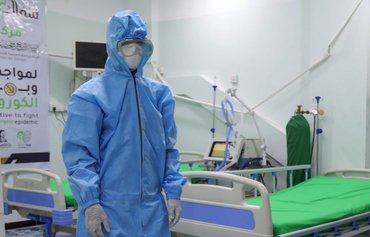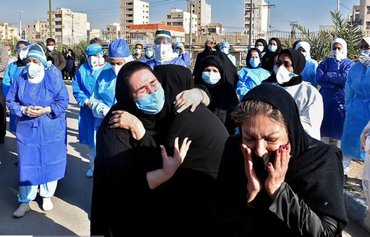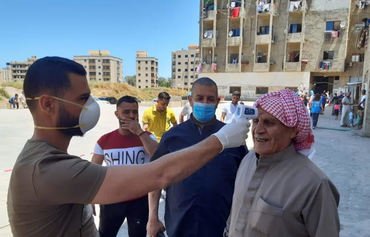Bahrain has turned a car park near the capital Manama into an intensive care unit with 130 beds for patients infected with the novel coronavirus (COVID-19), in a first in the Gulf.
The new ICU in the covered car park was set up as a precautionary measure in case of a spike in cases of the COVID-19 respiratory disease, officials said.
The small Gulf country, whose population stands at 1.5 million, has recorded more than 1,500 cases, of whom seven people have died and 645 have recovered.
According to official statistics, only three people are currently in critical condition.
"The new ICU is a precautionary step in case there are any developments," Sheikh Khalid bin Ali al-Khalifa, the Royal Medical Services commander, told reporters at the inauguration on Tuesday (April 14th).
"We are able in record time, in seven days, to establish this unit with 130 beds... working day and night."
"This is the first time that such an equipped (temporary) unit has been established in the Gulf," he said.
The Gulf emirate of Dubai is meanwhile setting up a field hospital in the World Trade Centre which once hosted events and business conferences to prepare for any potential surge of the virus.
The hospital will have 3030 beds, 800 of which will be allocated to the ICU, according to Ali Abdulqader, director of engineering at the centre.
The UAE has so far recorded more than 4,500 cases of coronavirus, including 25 deaths.
Strict measures
Bahrain's new ICU was set up by the defence ministry in co-operation with other government bodies, on the third floor of a military hospital which had served as a parking lot.
The beds were lined up in three rows as medical staff tested respiratory equipment on Tuesday.
Some 800 doctors and nurses have been training to deal with infected patients in critical condition since February, when Bahrain recorded its first cases, according to Nayef Lori, director of the ICU project.
Bahrain has taken strict measures to curb the spread of the novel coronavirus, including restricting movement and halting all flights.
The bridge connecting Bahrain with Saudi Arabia -- which has the highest number of cases in the Gulf with nearly 5,000 infections -- has been closed for weeks.
Although many measures remain in place, Bahraini authorities loosened some restrictions last week by allowing some retail stores to open their doors.

![Medical staff are seen in the newly-inaugurated intensive care unit for COVID-19 patients at the Bahrain Defense Force Hospital in Riffa, near the capital Manama, on April 14th. [Mazen Mahdi/AFP]](/cnmi_am/images/2020/04/15/23552-Bahrain-Manama-hospital-600_384.jpg)






